The UCL Good Manufacturing Practice (GMP) Facility is a state-of-the-art academic radiopharmaceutical unit that produces injectable diagnostic agents for imaging in humans.
The unit was licensed by the MHRA in 2017 (Specials’ and Investigational Medicinal Products). We specialise in the manufacture of radiotracers with short-lived nuclides as well as bespoke diagnostic agents for cutting-edge imaging techniques, including hyperpolarised magnetic resonance imaging (MRI).
Custom-designed for the on-demand production of radiotracers, the facility will greatly increase the potential applications of positron emission tomography (PET), both for diagnostic imaging of patients and as a tool for clinical studies.
The facility supports translational experimental medicine studies across UCL, UCL Hospitals and several collaborating institutions in south-east England. It was jointly funded by UCL and the University College London Hospitals Biomedical Research Centre.
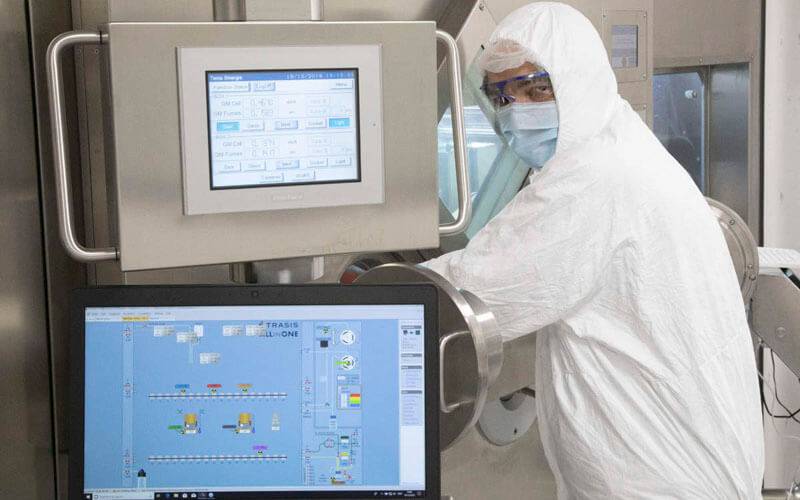
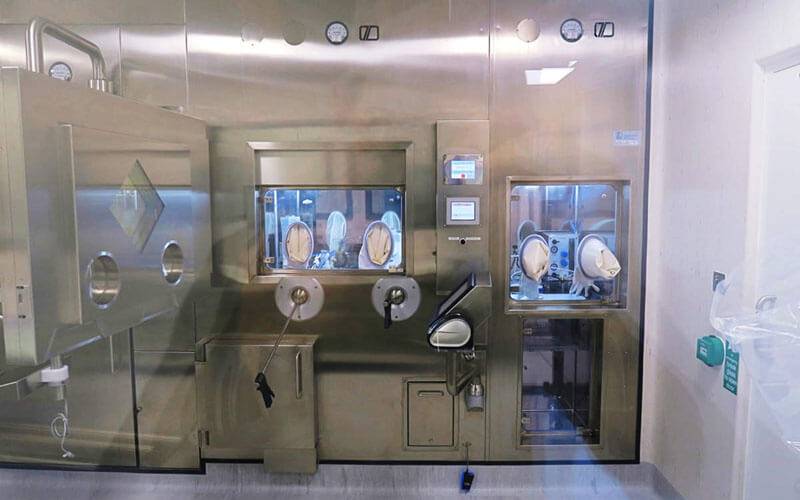
Products and services
We offer bespoke tracers for human imaging with positron emission tomography (PET) as well as hyperpolarized magnetic resonance imaging (MRI).
We are constantly implementing new tracer products. Please get in touch for quotations and/or if you are interested in setting up a new tracer for clinical studies.
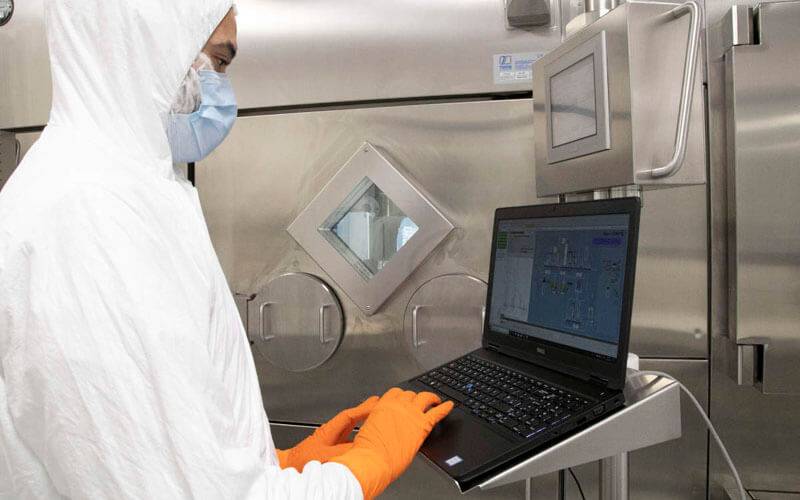
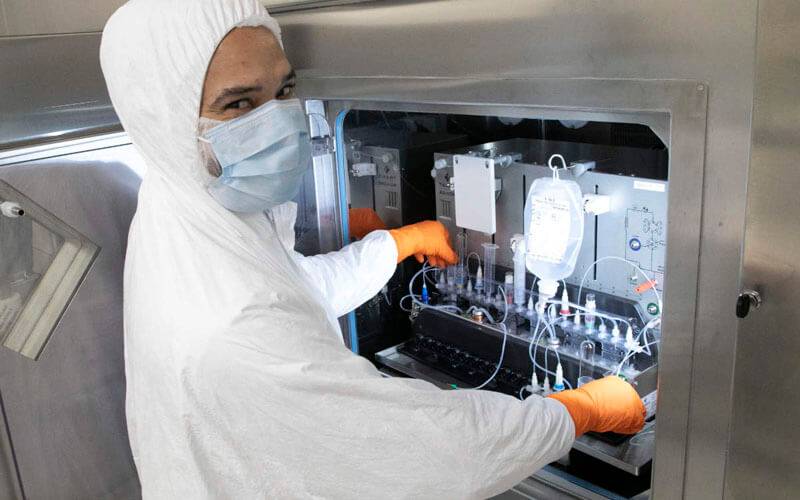
Portfolio
We are routinely manufacturing the following imaging agents:
- [18F]DPA-714 (translocator protein ligand for imaging of neuroinflammation)
- [18F]MK-6240 (tau ligand for imaging of dementia)
- [18F]NAV-4694 (amyloid-beta ligand for imaging of dementia)
- [18F]Fluorodopa (amino acid derivative to assess dopaminergic function)
- [18F]D4-Choline (cell membrane building block for imaging applications in oncology)
- [18F]AldoView (aldosterone synthase ligand for imaging of primary hyperaldosteronism)
- [13C]Pyruvate (metabolite to assess tumour aggressiveness)
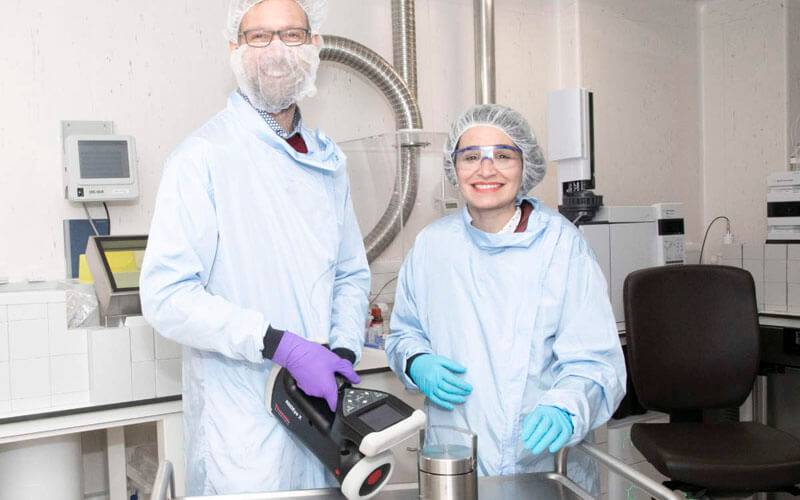
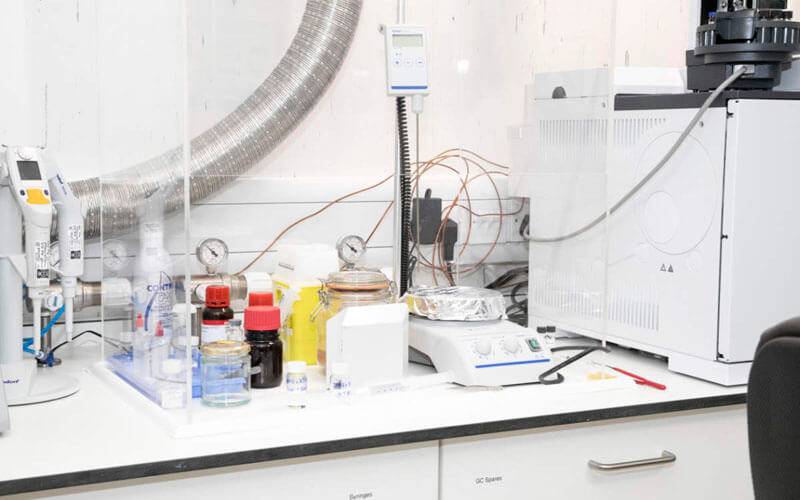
Tracer manufacture
The GMP Facility facilitates medical research by providing bespoke imaging agents to UCL, UCL Hospitals and partner institutions in south-east England.
We currently focus on the production of fluorine-18 labelled radiotracers for imaging with positron emission tomography (PET), and the aseptic filling of fluid paths for hyperpolarised magnetic resonance imaging (MRI).
Production of PET tracers
Fluorine-18 is amongst the most frequently used positron emitters used for medical imaging due to its near-ideal physicochemical properties. With the aim to make fluorine-18 labelled PET tracers widely available for clinical research, we work on the Trasis AllinOne platform to manufacture our products.
Following MHRA licencing of the GMP Facility in 2017, we routinely produce fluorine-18 labelled DPA-714, Fluorodopa, D4-Choline and MK-6240 to facilitate clinical studies at Higher Education Institutions in London and southeast England.
Filling of fluid paths for hyperpolarized MRI
Hyperpolarized MRI is an emerging molecular imaging technique for assessing perfusion and metabolism in vivo. By injecting carbon-13 labelled substrates biological systems can be monitored in real time. The results may allow the prediction of disease progression. At the UCL GMP Facility, we have developed a protocol for the aseptic filling of fluid paths. The kits containing carbon-13 labelled pyruvate can readily be used to manufacture hyperpolarized injectables at our partner clinical centres at UCL Hospitals and Nottingham University.
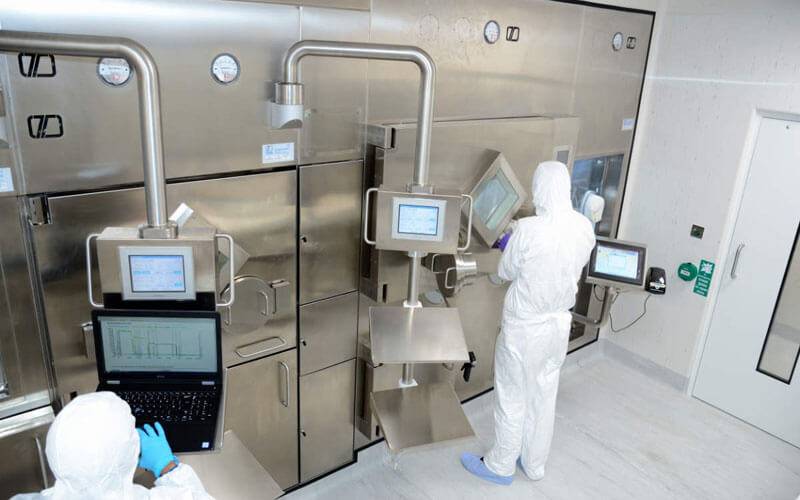
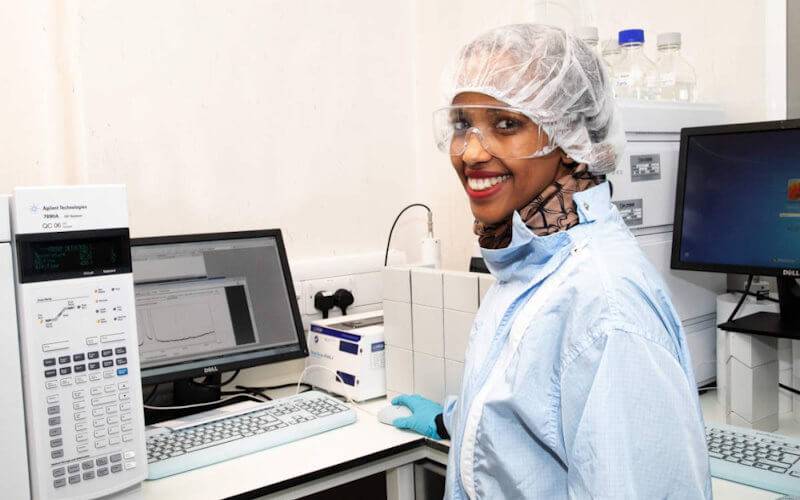
 Close
Close

